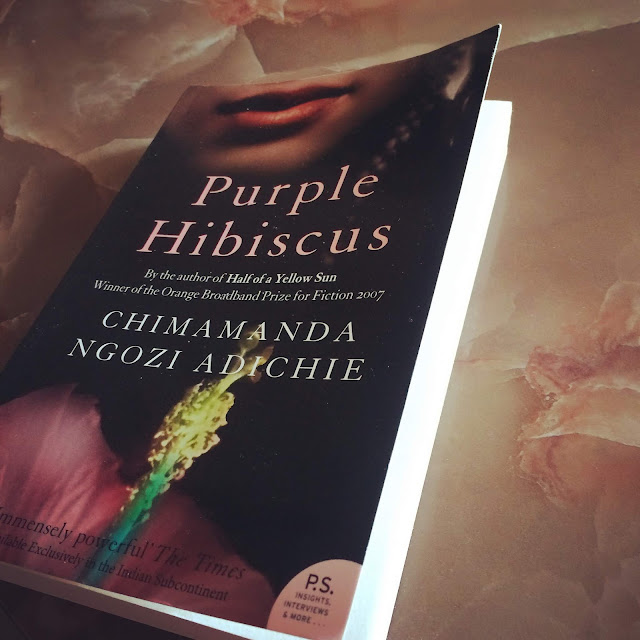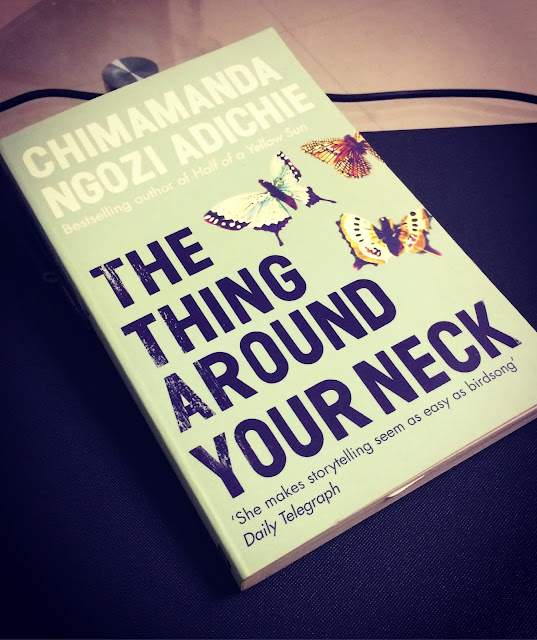Book Review: Purple Hibiscus by Chimamanda Ngozi Adichie
My Thoughts On The Book 'Purple Hibiscus' by Chimamanda Ngozi Adichie
I think
I’m in love with Chimamanda Ngozi Adichie’s writing and with the stories of
Nigeria. She has easily become one of my most favourite writers, which is rare
because I never could answer the question ‘Who is your favourite author’. I had
favourite books but not authors because I felt I’m not qualified to answer this
question unless I have read all the books of a writer or I like one book of
theirs but not the others.
I have
read Americanah, Half of a Yellow Sun and The Thing Around Your Neck. Loved all
three. The fourth Adichie book I picked up was her first novel – Purple Hibiscus –
the one that I’m going to talk about here.
_____________________________________________________________
Set in
post-colonial Nigeria, Purple Hibiscus lets you enter the life of Kambili, a
fifteen year old girl living in Enugu, Nigeria. Through her eyes, we are introduced
to her life of privilege, courtesy her father Eugene, a wealthy businessman and a
staunch Catholic. Kambili, her mother Beatrice and her brother Jaja are often
at the receiving end of physical abuse meted out by the religious fanatic
Eugene.
Their life
dotted with wealth and violent outbursts begins to change after Kambili and
Jaja go to live with their aunt Ifeoma for a few days in Nsukka. Ifeoma - Eugene’s
sister and a lecturer at the University of Nigeria - is a widow with three kids,
Amaka, Obiora and Chima. During their visit, Kambili and Jaja are amazed by how
different is Aunty Ifeoma’s modest household. The initial signs of differences
were the obvious ones – the size of the rooms and the food on the plate. But
then they notice the other differences. How the kids were allowed to fearlessly debate with their mother, how they laughed openly (and frequently), and how
they had more freedom in this tiny house compared to the suffocating silence
of their lavish house back in Enugu.
The political
unrest runs parallel to the turbulence in both the households – Enugu and
Nsukka. As the story progresses, we see how each of the characters deal with the
waves of change.
_______________________________________________________________
This is
a remarkable debut novel. Adichie’s writing did mature with each of her books
and I wish I had read her work chronologically. But it is clear that she had
mastered the art of pacing right from her first work of fiction.
She
wastes no time or words in droning on about the unnecessary details. The lines are
crisp and concise. And the language is smooth. It is easy to get absorbed in
the story. I found myself tightening my wrists and holding my breath at some
places because it hovered so close to the reality.
Adichie's writing inspires empathy quite effortlessly. It was interesting to discover why Eugene did what he did, why Beatrice tolerated the abuse, what finally pushed Jaja to show signs of resistance & rebellion and what Ifeoma will have to leave behind to guarantee a better life for her kids. Witnessing Kambili's transformation - from a shy girl who never uttered a word to a girl who found her way through love, intimate interactions and tragedy - was beautiful.
Please
pick up a copy!



Comments
Post a Comment